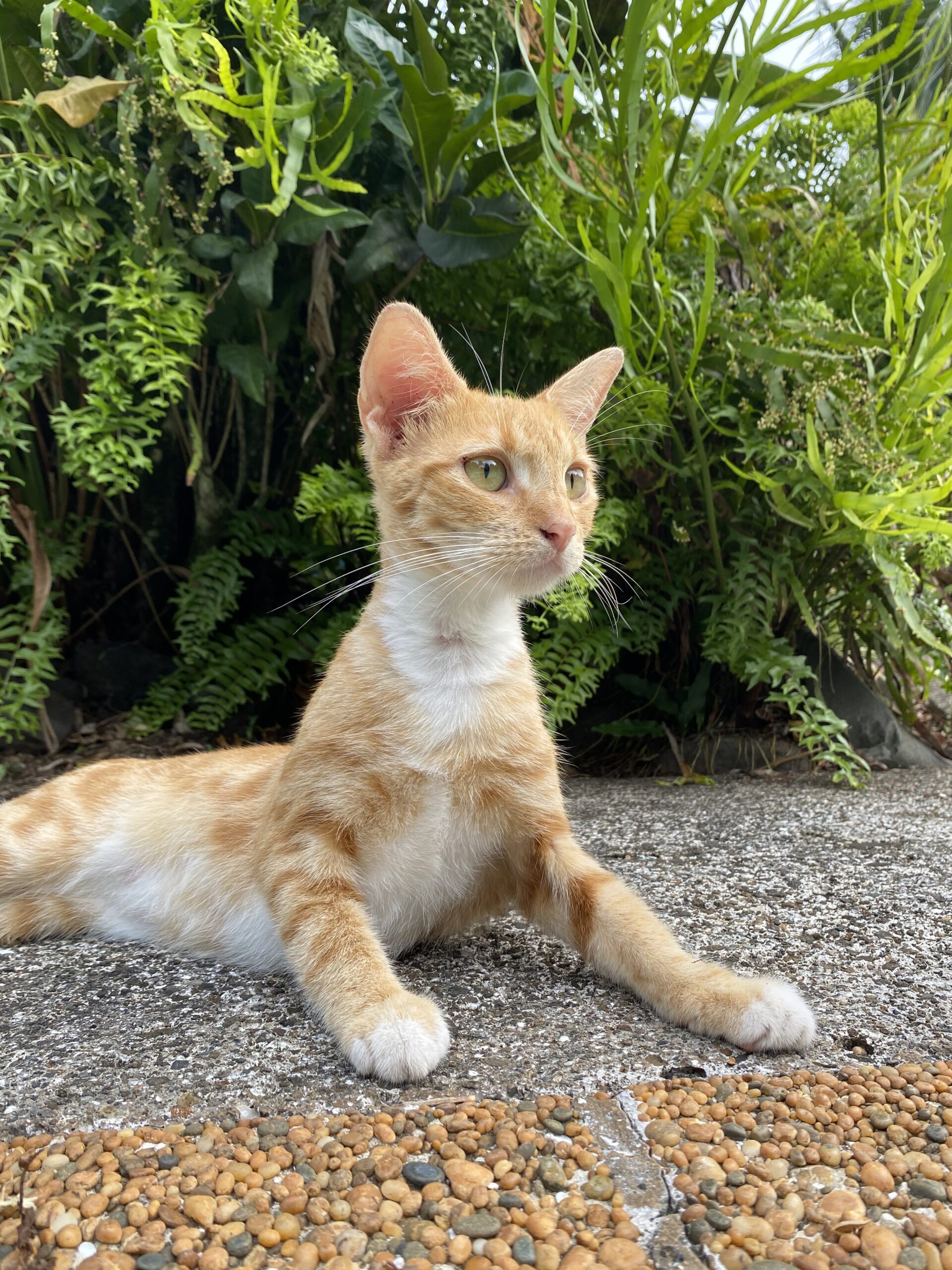Pet Talk: How to get rid of fleas on your pet
Wednesday 13 March 2024 | Written by Supplied | Published in Opinion, Pet Talk

Cats have the added burden of constantly carrying insects that can’t fly but can jump extraordinary distances, the flea. TE ARE MANU/24031210
Fleas can cause a lot of problems for dogs and cats, but there are treatments available to help control them, writes Dr Rose Hasegawa, medical director Te Are Manu.
Have you ever had mosquito bites, and scratched the itch they cause? Those horrible flying pests spoil many evenings, buzzing around your ankles and, as soon as you try to sleep, your ears. We light fires, and mosquito coils, we sleep in nets, and we smother ourselves in strong smelling chemicals to keep them away. At least there is usually some break from them, they are less active during the day.
Dogs and cats face the same challenges from mozzies, although they seem to cope better with these nasty critters than we humans do. But dogs and cats have the added burden of constantly carrying insects that can’t fly but can jump extraordinary distances, the flea. These noxious little insects also carry tapeworms which can infect the dogs and cats, and their human families.
Fleas are the cause of most of the skin and coat problems we see at Te Are Manu. Cats and dogs with bald patches on their sides and around their tails, red wounds from scratching and, in older animals, thickened, darkened, elephant like skin which is the result of constant and serious irritation over a lifetime.
Being constantly itchy because of insect bites is not a pleasant way to live. For some dogs and cats this unpleasantness is made much worse because of an allergy to flea bites. For these animals one flea bite can result in weeks of scratching, hair loss, and subsequent skin infection from the damage they do to their skin with claws and teeth. They are often so itchy they prefer scratching to playing, to exercising, and to eating. They lose weight almost as fast as they lose hair.
So what can we do to help?
Controlling fleas can be difficult, they are mobile pests and treating one animal in a household is not enough. Free range dogs and cats, which mingle and socialise with neighbours and friends down at the beach are constantly being infected by these other animals. The treatments available these days are excellent, many last for a month, some last longer, even up to six months. But if the treatment is not repeated at the correct time, reinfection is certain.
Fleas lay their eggs in bedding. The eggs hatch when they detect vibration or movement. The eggs are hard to kill. They survive for prolonged periods if they are not made to hatch by the arrival of an animal back in its bed. Flea bombs can be useful to kill the fleas and flea larvae in a house, but ensuring the eggs are all hatched first makes the treatment much more effective. Shaking bedding and vacuuming mats and carpets will do this.
If your pet is ever in contact with other animals, including wild cats or dogs, it is likely to have fleas. Give us a call if you want to discuss flea control, or if you have a pet losing hair.














































